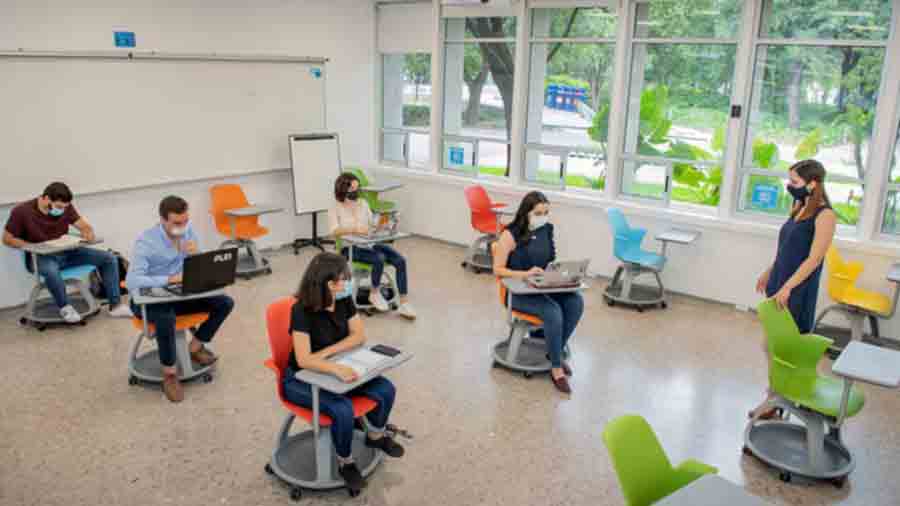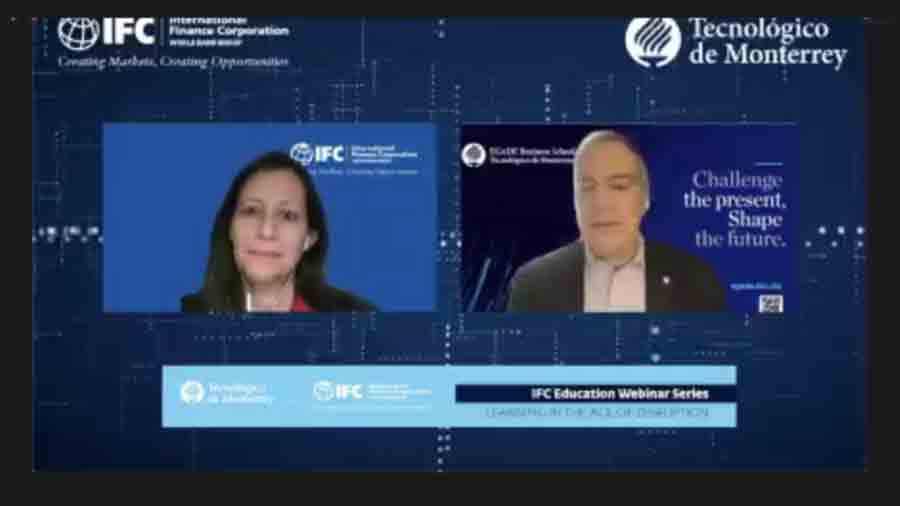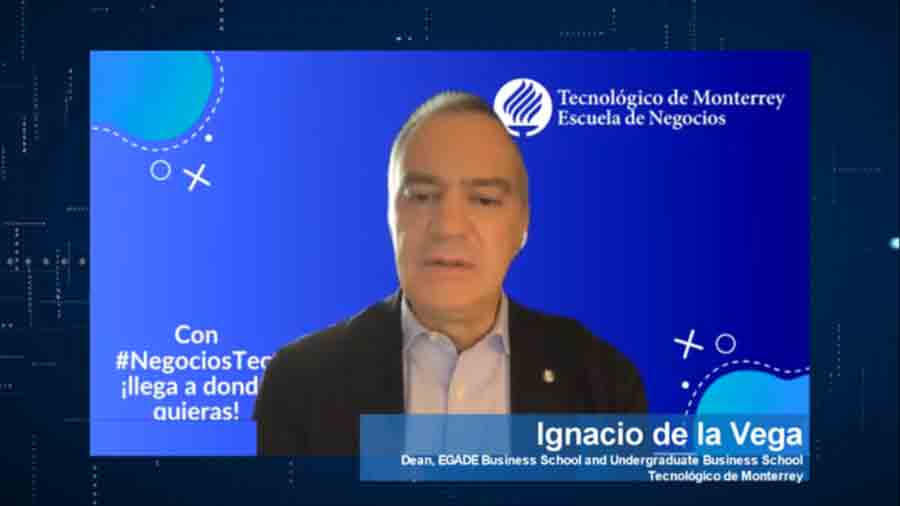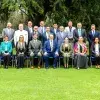The World Bank has recognized Tec de Monterrey for reorganizing its Tec21 Model to deal with the COVID-19 pandemic through its HyFlex+Tec strategy.
In the webinar “Shaping the Future of Transformational Education & Lessons from COVID-19: Mexico Shows the Way”, executives from the Tec, private companies, and the International Finance Corporation (IFC), a World Bank organization, discussed education during the health emergency.
David Garza, the Tec’s rector and executive president, and Georgina Baker, IFC Vice President for Latin America, the Caribbean, Europe, and Central Asia, led this panel on the evolution of the Tec’s challenge-based educational model.
This is not the first time IFC has recognized the Tec’s educational model. In January, Ann Casanova, who was also present at the webinar, presented a Tec21 Model case study.

Baker acknowledged that distance education around the world began long before the current pandemic. However, this way of teaching became the only form that could be used successfully as a result of the pandemic.
“The pandemic has affected universities. Virtual education has already become a reality and the Tec21 Model has adapted to this new concept. The Tec has always sought to prepare its students for the future,” she stated.
David Garza Salazar, the Tec’s rector and executive president, highlighted the importance of preparing students to face an uncertain, volatile, ambiguous, and complex world.
This need, says Garza, along with resilience and responsiveness, is what prompted the Tec to act when the pandemic changed education around the world.
“The pandemic came along and brought new challenges and opportunities with it. Concepts such as micro-masters, hybrid learning, and continuing education are going to be important for education,” he added.

HyFlex+Tec: our educational toolbox
Ignacio de la Vega, dean of the Tec’s EGADE Business School, recalled the adaptations made when, on March 12, 2020, the Tec announced that it would migrate to the HyFlex+Tec virtual model.
“It was difficult. There are 90,000 students, 10,000 teachers and 50,000 classes every week,” he shared.
This format not only focuses on classes but also on creating an entire environment with student leadership and training activities, emotional and mental health support, nutritional information, exercise, and attention 24 hours a day, 7 days a week.
“The classes worked well, but we still needed to have a holistic view of the process, and that’s why we launched HyFlex+Tec. The future began long before the pandemic. We’ve been continually developing Tec21, even after it was launched almost 18 months ago,” added De La Vega.
“We also added different courses and certificate programs. Now, even though we’ve been using this new model for months, we’re still continuing to innovate and improve,” added the dean.

Similarly, Juan Pablo Murra, the Tec’s rector for undergraduate programs, spoke out about the importance of faculty to both the new teaching format and in the educational model itself.
“From the very beginning, we understood the crucial importance of the teaching staff. Teachers have had to work differently, and that is not always easy,” Murra said.
“Doctors and health personnel have been heroes in this pandemic, but so have the teachers who are teaching millions of students around the world.
“The plus (+) that is included within the HyFlex+Tec name is important because it is not only about teaching, but also about the student experience,” added Murra.
De La Vega added that, by 2025 or 2030, the university wants to have the best teaching staff in the world.

An education apt for post-pandemic labor challenges
The Tec21 Model has 4 core pillars: challenge-based learning, flexibility in how, when and where you learn, memorable university experiences, and inspiring teachers.
As part of challenge-based learning, students are able to work together with their teachers and peers to solve problems faced by real organizations, which are called training partners.
These challenges changed during the pandemic, both in terms of the adoption of an online format for learning, and also in providing solutions to problems generated by the pandemic.
Susana Coppel, president of Fundación Coppel Comunidad and a member of the board, also participated in the IFC organized webinar, and shared her experience of how Tec students were able to adapt their detection of, and resolutions for, new challenges.

“The Tec trains its teams of students; we nominate executives to be judges for each of the stages and, at the end, the 5 best proposals are chosen.
“We put the solution (provided by the challenge’s winning students) into practice: we began using WhatsApp as a means of communication with our customers at the beginning of the pandemic,” Coppel said.
Other ideas proposed by students to deal with the problems brought on by COVID-19 have also been of help to the company.
Susana added that the students have done outstanding work online and have demonstrated that they are prepared to be the professionals of the future.
The Coppel company has been a Tec training partner as part of its educational model for 2 consecutive years.

Likewise, Ann, who carried out a case study of the model in early 2020, confirmed that these activities and adaptations to the pandemic are preparing young people for what is to come.
“The Tec is preparing its students to face the future; it gives them control over their careers and strengthens their abilities.
“It helps them to solve complex problems and work in multidisciplinary teams. The students will be able to find innovative solutions and be prepared for a complex world,” she confirmed.
You can watch the webinar here:
YOU’LL DEFINITELY WANT TO READ:





